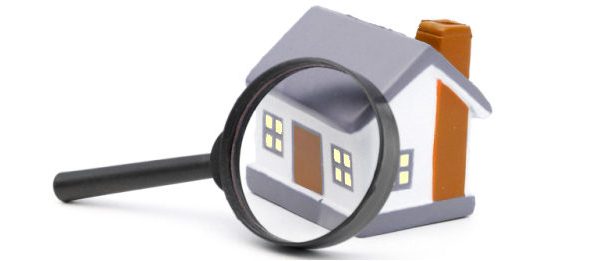Inspections on Bank Owned Homes

Bank owned homes are properties that have been repossessed by the lender and are now being sold in an attempt to recoup their losses. Since the lender has never lived in the home, or even seen the home for that matter, these homes are sold in “as is” condition and without any disclosures. This is the primary reason why a buyer needs to complete a thorough home inspection.
Can I do my own Home Inspection?
The answer depends on two main factors: the buyer’s experience and knowledge and the amount of risk the buyer is willing to take. If the buyer has experience in home repairs, remodeling or renovation, then they may be in a good position to make an honest examination of the REO property.
Another consideration is the amount of risk that comes from a buyer only building inspection. If this is the buyer’s first home and they have fallen in love with it, it can be easy to overlook “simple” items such as water stains, cracks in the foundation or out of date electrical systems.
Will I need a Professional Certified Home Inspector?
A professional home inspector has the experience, skills and tools to accurately check each major area of the bank owned home you’re interested to buy. Their detailed checklist will ensure that they inspect areas which are easy to overlook, hard to access or require specialized equipment.
Additionally, the buyer will receive a written report from the inspector which details any problems with the home. This document can be used at times to negotiate a lower sales price or a reimbursement for repairs at the time of closing.
It should be noted that in many states, home inspectors do not have to be licensed. Make sure they belong to a national inspector association like ASHI (American Society of Home Inspectors) or NAHI (National Association of Home Inspectors). If, in rare instances, the inspector misses a major defect in the home, their errors and omissions insurance will cover the loss.
Inspecting the Home
Regardless of whether the buyer hires a professional home inspector company or they decide start inspecting the property themselves, a room by room systematic inspection will help accurately evaluate the potential purchase. First, they should walk through the home to become familiar with the property. They do not need to “inspect” the property during the first walk-through. Focus on the layout, the design, the kitchen layout, room sizes and the functionality of the home. Regardless of the condition, these are the factors that make a home livable.
Once the initial walk-through is complete, now is the time to begin a more thorough examination of the property. During the bank owned home inspection, examine every detail with a critical but honest eye. Taking photographs of problems is a good idea.
Home Inspection Checklist
Electrical Systems
- Determine the load capacity of the electrical box.
- Examine the type and condition of the wiring.
- Look for burn marks around switches, plugs and lighting fixtures.
- Test all plugs to make sure they are properly wired.
- Look for GFI plugs in the kitchen and bathrooms.
Plumbing Systems
- Determine the type of plumbing materials – PVC, copper, galvanized.
- Check for water leaks or evidence of past leaks on walls, ceilings or flooring.
- Examine water heaters, garbage disposals and water softener or filtration systems.
- Test the outside lawn sprinkler system. Look for leaks or missing heads.
Structural System
- Carefully inspect the foundation. Look for cracks or infestation.
- Examine flooring systems (from either the crawl space or the basement).
- While checking the roof system in the attic, examine the insulation as well.
- Inspect the roof and roofing materials (either in person or with binoculars).
- Look to see if the floor is level and the walls are plumb.
- Examine the condition and the quality of the windows.
Mechanical Systems
- Carefully examine the heating and cooling system. Look for the last inspection date, examine the filters and test for carbon monoxide.
- Test all air conditioning units.
- Test garaged door openers.
- Examine and/or test any security systems.
Some items require a home inspection service that is above and beyond even a licensed home inspector’s level of expertise. If the buyer suspects a problem in these areas or they receive a recommendation from the inspector, it is wise to contact a specialist on these areas:
- Evidence of termite or vermin infestation.
- Chimneys are a major source of home fires and require regular inspection and cleaning.
- Foundation issues are indicated by floor sagging, cracks in the foundation or walls and water in the crawl space or basement.
- Mold can destroy a home and cause serious health issues.
- Lead paint is a danger found in homes built before 1978.
Completing a home inspection is a critical step in the purchase of real estate, especially if it is a bank owned property. A professional home inspection cost an average of $300 – $500 per inspection and can be well worth it in the end. Knowing the true condition of the home will help the buyer count the true costs of the purchase; it will help in the negotiation process; and provides the buyer with an added sense of security.

